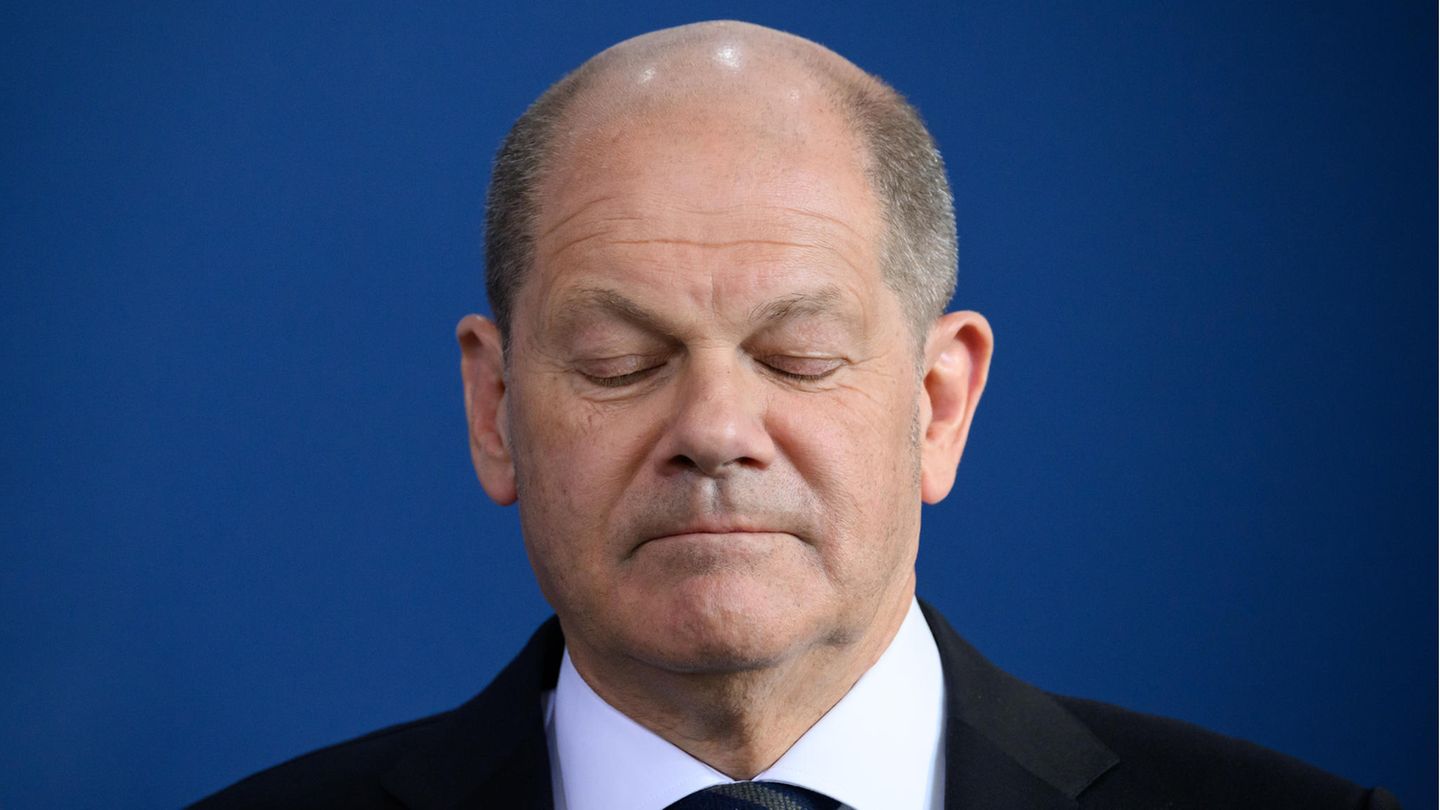analysis
Almost eight months after winning the federal election, the mood of crisis is back in the SPD. In NRW, hundreds of thousands of regular voters refused to vote. Not least because of the Chancellor’s political style.
Shortly after last year’s federal election, the starthat the SPD, which has already been declared dead, suddenly has an amazing wealth of power. In the Willy-Brandt-Haus, after a long dry spell, people thought they were back on the road to success and even proclaimed a “decade of social democracy”. But after Sunday’s elections in North Rhine-Westphalia, the euphoria of the “Chancellor’s Party” has already evaporated; There has been considerable criticism of Chancellor Olaf Scholz’s leadership style – especially with regard to his attitude to the Ukraine war. In the “small federal elections” in the most populous federal state, the comrades brought in a historically poor result. A notable reason: Many regular voters obviously have no desire to support “their” party in this state and simply stayed at home.
“The SPD obviously couldn’t mobilize, in two ways,” analyzed the political scientist and editor of the , Albrecht von Lucke, in an interview with the star. In terms of state politics, the weak top candidate Thomas Kutschaty “didn’t hit the right note or the mentality of the people”. In terms of federal politics, it has to be said that headwinds were even created – by the antics of Defense Minister Christina Lambrecht, the party’s connections to Russia and, above all, by the chancellor. “Olaf Scholz’s poll values are not suitable for bringing the SPD forward.”
Olaf Scholz bears responsibility for the defeat
Many political observers are certain that the unexpectedly clear election gossip will go home with the chancellor. The criticism of the sometimes completely missing, sometimes unclear in terms of content and generally perceived as inadequate communication is omnipresent. Added to this is the hesitation and procrastination in Ukraine policy, which makes the European partners doubt the reliability of the German government. A big burden for the election campaigners in the former homeland of social democracy.
So did the comrades in Düsseldorf (also) have to pay for politics in Berlin? “Definitely,” says von Lucke. “The SPD took a big risk, but not voluntarily, because they knew very well that this election would have an enormous impact on the federal government. That’s why Scholz was always billed side by side with Kuchaty and accordingly lost together with him and shares responsibility for this defeat.”
SPD in NRW: “The reputation has been permanently demolished”
The refusal to vote of around 300,000 supporters weighs particularly heavily, according to von Lucke. Especially since, according to polls, a head-to-head race had been expected for a long time. “Actually, the conditions weren’t bad,” says the political scientist. “One cannot claim that the CDU-FDP government was convincing in all areas.” On the contrary: the departure of ex-prime minister and ex-CDU leader Armin Laschet was a disaster. Added to this was the “Mallorca affair” surrounding ex-Environment Minister Ursula Heinen-Esser (CDU) and her resignation. The Corona policy in schools, for which the FDP Minister Yvonne Gebauer is responsible, generated angry criticism from parents and is one of the reasons for the election disaster of the Liberals in NRW. “That means: The mobilization failed completely, although the election seemed open. That must give the SPD a lot to think about. The reputation of the SPD in North Rhine-Westphalia has clearly been permanently damaged.”
This also applies to the staff of the party. “In terms of personnel, the SPD in North Rhine-Westphalia is massively exhausted,” says the expert. As an alternative to the weak top candidate Kutschaty, one could at best have considered “re-importing” a prominent NRW force from federal politics. But: “The only two people who have appeared in the federal government from North Rhine-Westphalia are Karl Lauterbach, who you wouldn’t necessarily expect to be prime minister after having difficulties with his own ministry, and Svenja Schulze, who isn’t exactly suitable as a development ministry is to really mobilize.” Now the consequences of staff wear and problems with young people in the NRW-SPD are becoming apparent.
“The SPD is almost back to zero”
“One can say it harshly: the SPD is almost back to zero. In other words: like before the Scholz election with black and green as an almost mandatory alternative government,” says von Lucke. Like a year before the federal elections, the CDU stands there as the guarantor of security and thus as the guardian of current interests, and the Greens are the progressive party of the future. “That was probably also the reason why the SPD in North Rhine-Westphalia did not appear to be really open to the future,” said von Lucke. CDU man Hendrik Wüst lacks charisma, but if he can bring black and green together in Düsseldorf, then that will be the coalition of the future. And with that, the SPD is threatening to be left behind again as a party of the past. Not an attractive prospect even for die-hard SPD supporters in North Rhine-Westphalia.
Source: Stern
David William is a talented author who has made a name for himself in the world of writing. He is a professional author who writes on a wide range of topics, from general interest to opinion news. David is currently working as a writer at 24 hours worlds where he brings his unique perspective and in-depth research to his articles, making them both informative and engaging.




